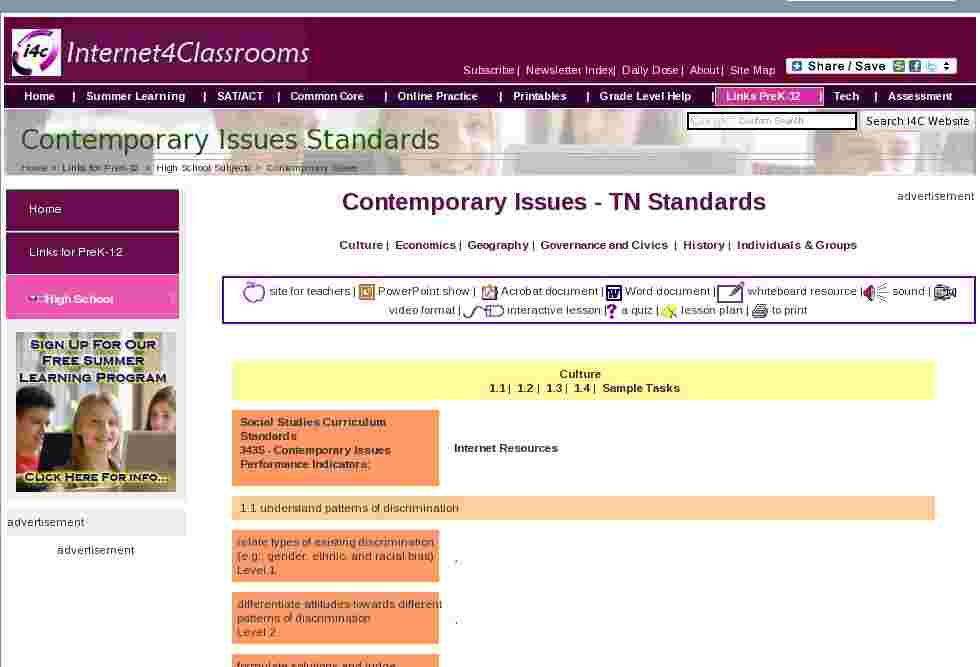advertisement
Contemporary Issues - TN Standards
Culture | Economics | Geography | Governance and Civics | History | Individuals & Groups
site for teachers |
PowerPoint show |
Acrobat document |
Word document |
whiteboard resource |
sound |
video format |
interactive lesson |
a quiz |
lesson plan |
to print
Social Studies Curriculum Standards
3435 - Contemporary Issues
Performance Indicators:
Level 1
Level 2
Level 3
Level 1
Level 2
Level 3
Level 1
Level 2
Level 3
Level 1
Level 2
Level 3
Social Studies Curriculum Standards
3435 - Contemporary Issues
Performance Indicators:
recognize different types of stocks and investments available to the public
Level 1
Level 2
Level 3
Level 3
Level 1
Level 2
Level 3
Level 1
Level 2
Level 3
Level 3
Social Studies Curriculum Standards
3435 - Contemporary Issues
Performance Indicators:
Level 1
Level 2
Level 3
Level 1
Level 2
Level 3
Social Studies Curriculum Standards
3435 - Contemporary Issues
Performance Indicators:
Level 1
Level 2
Level 2
Level 3
Level 1
Level 2
Level 3
Level 3
Social Studies Curriculum Standards
3435 - Contemporary Issues
Performance Indicators:
Level 1
Level 1
Level 2
formulate proactive policies for the United States to avoid future conflicts
Level 3
Level 1
Level 2
Level 2
Level 3
Social Studies Curriculum Standards
3435 - Contemporary Issues
Performance Indicators:
Level 1
Level 2
Level 3
Level 1
Level 2
Level 3
Level 3
Level 1
Level 2
Level 3
Search Internet4Classrooms
 Custom Search
Custom Search
- Site Map |
- About Us |
- Teacher Training |
- Make Internet4Classrooms.com your home page. |
- Copyright © 2000-2024 Internet4Classrooms, LLC All rights reserved.
Use of this Web site constitutes acceptance of our Terms of Service and Privacy Policy.
1764988073264543 US 75 desktop not tablet not iPad device-width